
Johnny Hates Jazz are a British band, currently consisting of Clark Datchler and Mike Nocito. In April 1987, they achieved international success with their first hit single "Shattered Dreams."

Turn Back the Clock is the debut studio album by English band Johnny Hates Jazz, released by Virgin Records on 11 January 1988 in United Kingdom and on 29 March 1988 in the United States. The album, whose most famous single was "Shattered Dreams", peaked at number one on the UK Albums Chart and at number 56 on the US Billboard 200. Kim Wilde sings backing vocals on the title track, which reached number 12 on the UK Singles Chart and number 10 in New Zealand. The track "Foolish Heart" was originally released as a single in 1986 as "Me and My Foolish Heart".

"I Didn't Want to Need You" is a song by American rock band Heart. It was composed by veteran songwriter Diane Warren and released as the second single from the band's 10th studio album, Brigade (1990). "I Didn't Want to Need You" is a midtempo rock song with lyrics in which singer Ann Wilson laments her lack of resistance to fall in love with someone. The single peaked at number 23 on the US Billboard Hot 100 and number 14 on the Canadian RPM Top Singles chart. It also reached the top 40 in Ireland and Sweden and number 47 on the UK Singles Chart.
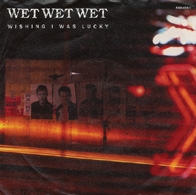
"Wishing I Was Lucky" is the debut single of Scottish band Wet Wet Wet, released as the lead single from their first album, Popped in Souled Out (1987). Recorded for £600 in Edinburgh, it was released in March 1987 and was their first hit, peaking at No. 6 on the UK Singles Chart and No. 10 in Ireland. The following year, the song reached the top 20 in Belgium and the Netherlands, while in the United States, "Wishing I Was Lucky" became the group's first of two songs to chart on the Billboard Hot 100, peaking at number 58.

"When Will I Be Famous?" is a song by British boy band Bros. Written by Nicky Graham and Tom Watkins, "When Will I Be Famous?" was released as a single on 16 November 1987, and peaked at number two on the UK Singles Chart and at number one on the Irish Single Chart, as well as reaching the top five in several other countries. "When Will I Be Famous?" would later appear on their 1988 album, Push.
"Kingston Town" is a 1970 song by Lord Creator released as a single on producer Clancy Eccles' Clandisc label. It was also recorded in 1989 by reggae group UB40 and was released as the second single from their album Labour of Love II, reaching number four on the UK Singles Chart and number one in France and the Netherlands.

"Shattered Dreams" is a song by English musical group Johnny Hates Jazz from their debut studio album, Turn Back the Clock (1988). Written by the band's lead singer Clark Datchler, the song was released in March 1987 as the album's lead single. "Shattered Dreams" entered the UK Singles Chart at number 92 and gained popularity through extensive radio play and video rotation on MTV, eventually peaking at number five in May 1987 and spending three weeks at that position. It also reached the top 10 in Canada, Ireland, Norway, Switzerland, and West Germany.
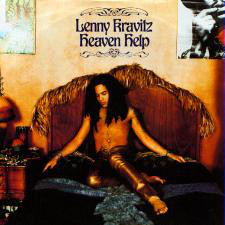
"Heaven Help" is the third single taken from American rock musician Lenny Kravitz' third studio album, Are You Gonna Go My Way (1993). The song made a brief appearance on the US Billboard Hot 100, reaching number 92. In the United Kingdom, it became his second top-twenty hit from Are You Gonna Go My Way, peaking at number 20, and in Canada and New Zealand, the song reached the top 30. It was included on Kravitz' greatest hits album Greatest Hits.

Clark Wynford Datchler is an English singer, songwriter, musician and record producer. He first rose to fame in 1987 as the lead singer, songwriter and multi-instrumentalist in the band Johnny Hates Jazz.

"Runaway Horses" is a song by American singer Belinda Carlisle. It was released as the fourth single from her third album of the same name in February 1990. "Runaway Horses" reached the top 50 in Australia and the United Kingdom. The music video was directed by Greg Masuak.
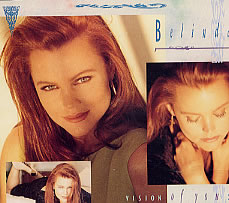
"Vision of You" is the fifth single from American musician Belinda Carlisle's Runaway Horses album. The song was released on May 14, 1990, in the United Kingdom and reached number 41. A year later, it was remixed and re-released on 12-inch vinyl with a live version of "Heaven Is a Place on Earth", but this release charted lower, at number 71.
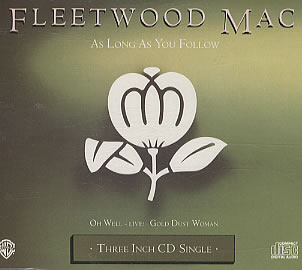
"As Long as You Follow" is a song by British-American rock band Fleetwood Mac. Performed by Christine McVie and written alongside her then-husband, Eddy Quintela, the song was one of two new tracks on the band's 1988 greatest hits album, along with "No Questions Asked". Lead guitarist Rick Vito singled out the guitar solo as his best work with Fleetwood Mac.

Tall Stories is the second studio album by Johnny Hates Jazz, released by Virgin in 1991. The follow-up to 1988's Turn Back the Clock, Tall Stories features producer and songwriter Phil Thornalley as lead singer, following the departure of the band's frontman Clark Datchler. On the eve of the album's release, Thornalley and keyboardist Calvin Hayes were involved in a serious car crash that depleted the band's momentum. The album failed to chart, and the band subsequently folded.

"In My Heart" is a song by Scottish band Texas, released as the second single from their second studio album, Mothers Heaven (1991). It reached number 74 on the UK Singles Chart, where it remains the band's lowest-charting single. Elsewhere, the song reached number 32 in New Zealand and number 44 in France, and it was the group's second single to chart in the United States, reaching number 14 on the Billboard Modern Rock Tracks chart.

"Turn the Tide" is a song by British pop band Johnny Hates Jazz, released by Virgin as a non-album single in 1989. The song was written by Phil Thornalley, Scott Cutler and Chris Murrell, and produced by Calvin Hayes and Mike Nocito. It peaked at number 84 in the UK Singles Chart and remained in the top 100 for two weeks.
"Irresistible" is a song written and recorded by British singer-songwriter Steve Harley. It was released three times as a single; the first being in 1985 as a non-album single under his band's name Steve Harley & Cockney Rebel In 1986, a remixed version of the song was released by Harley as a solo single in the UK, and in 1992, he re-released this version as a single in Europe from his solo album Yes You Can. "Irresistible" was written by Harley and produced by English producer Mickie Most.

"Don't Say It's Love" is a song by British band Johnny Hates Jazz, released in 1988 as the sixth and final single from their debut studio album Turn Back the Clock. It was written by Clark Datchler and produced by Calvin Hayes and Mike Nocito. "Don't Say It's Love" reached No. 48 in the UK Singles Chart and remained in the top 100 for three weeks. The song did not achieve commercial success in Europe, but reached No. 22 on the European Airplay Top 50 chart.

"Ace of Hearts" is a song by British singer-songwriter Chris Rea, which was released by Magnet in 1984 as the fourth and final single from his sixth studio album Wired to the Moon. The song was written by Rea, and produced by Rea and Dave Richards.
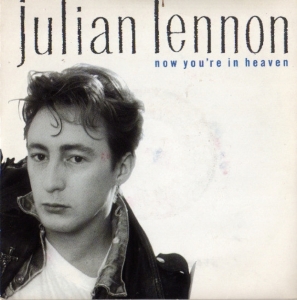
"Now You're in Heaven" is a song written by Julian Lennon and John McCurry, recorded by Lennon and released as the lead single from his third studio album, Mr. Jordan (1989), on which the song appears as the opening track. A David Bowie-inspired song, it was the highest-charting single released from the album, topping the US Billboard Album Rock Tracks chart and reaching No. 5 in Australia. It was certified gold in the latter country by the Australian Recording Industry Association (ARIA) for shipments of over 35,000 units.

"Me and My Foolish Heart" is the debut single by English band Johnny Hates Jazz, released by Rak in 1986. It was written by Phil Thornalley, Calvin Hayes, Iain MacDonald and Mike Nocito, and was produced by Hayes and Nocito. The song was included on the band's 1988 debut album Turn Back the Clock as "Foolish Heart".

















